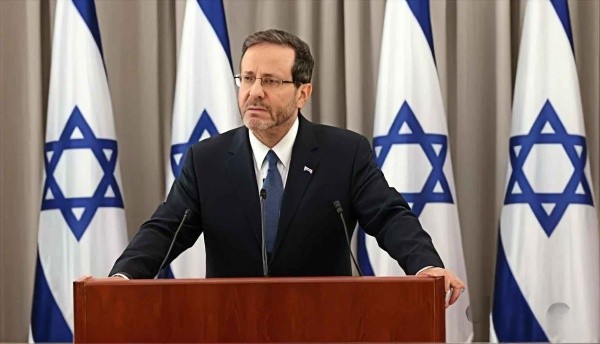Iran’s Plan to Strike Back Against the U.S.
Iran’s Military Preparations Following U.S. Attacks
Loading...

Hezbollah has “many enemies,” while his country is only “defending itself,” Isaac Herzog has said
Herzog's Defense of Israel Amidst Accusations
In a recent interview with Sky News, Israeli President Isaac Herzog addressed the contentious issue surrounding the mass detonation of pagers and walkie-talkies in Lebanon, which resulted in the tragic loss of at least 37 lives, including two children, and left around 3,000 injured. Herzog firmly rejected any allegations linking Israel to the attacks, emphasizing that his country is merely acting in self-defense against its adversaries.
“I reject out of hand any connection to this or that source of operation,” Herzog stated, responding to questions about Israel's potential involvement. His comments come in the wake of widespread speculation and criticism regarding the attacks, which have drawn international condemnation.
Hezbollah's Role and Israel's Stance
During the interview, Herzog shifted the focus to Hezbollah, accusing the militant group of being a significant threat to Lebanon itself. He stated, “Hezbollah has been choking Lebanon, destroying Lebanon, creating havoc in Lebanon again and again and again.” This assertion highlights Israel's long-standing view of Hezbollah as a destabilizing force in the region.
While Herzog did not explicitly deny Israel's involvement in the attacks, he refrained from attributing blame to any specific party, instead reiterating that Israel's actions are purely defensive. “We are here simply to defend ourselves. That’s all we do,” he asserted, framing Israel's military posture as a necessary response to the threats posed by Hezbollah and other adversaries.
International Reactions and Human Rights Concerns
The attacks have sparked outrage globally, with human rights advocates and officials calling for accountability. UN Human Rights Commissioner Volker Turk described the incident as “shocking,” expressing concern over the profound “fear and terror” it has instigated among the Lebanese populace. He criticized the indiscriminate nature of the attacks, which targeted thousands without regard for the identities or circumstances of those affected.
Turk emphasized that such actions violate international human rights law and, where applicable, international humanitarian law. The simultaneous targeting of individuals, whether civilians or members of armed groups, raises serious ethical and legal questions about the conduct of military operations in densely populated areas.
The Broader Implications for Lebanon and Israel
The situation in Lebanon remains precarious, with Hezbollah's influence continuing to grow amidst the country's ongoing political and economic crises. Herzog's comments reflect a broader narrative within Israel that seeks to justify military actions as necessary for national security. However, the humanitarian impact of such operations cannot be overlooked, as the civilian toll continues to rise.
As tensions escalate, the international community watches closely, urging both sides to exercise restraint and prioritize dialogue over violence. The recent events underscore the fragile state of affairs in the region, where the actions of one party can have far-reaching consequences for countless innocents.
In conclusion, President Herzog's remarks highlight Israel's defensive posture while casting Hezbollah as a primary antagonist in the ongoing conflict. The tragic outcomes of the recent attacks serve as a stark reminder of the urgent need for a resolution to the underlying issues that perpetuate violence and instability in Lebanon and beyond.
Editor
Iran’s Military Preparations Following U.S. Attacks
Troops remain in five strategic locations, raising fears of renewed tensions and long-term occupation.
Opposition forces have taken control of the capital after a significant offensive. Here is how it unravelled.
